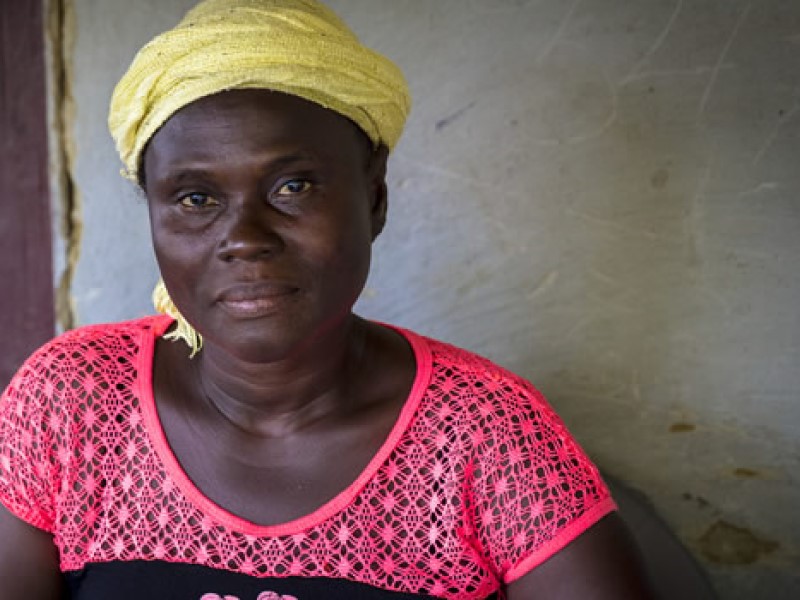UN Women West and Central Africa Regional Office (WCARO) has been established for over a decade and provides ongoing support to country offices in Cameroon, Niger, Nigeria, Central African Republic, Liberia, Senegal, Democratic Republic of Congo, Cote d'Ivoire, Mali and Sierra Leone. LEARN MORE >
Key focus areas
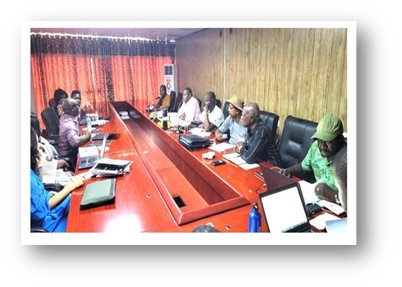
Governance and participation in public life
National and regional initiatives are designed to increase the understanding of the legal obligations of countries in the West and Central Africa (WCA) region to achieve gender equality in decision-making. It focuses on improving the legal framework to ensure that laws are clearly drafted, implementable and effective. Special focus is devoted to the processes by which laws supporting women’s participation in public life are developed, drafted and implemented. Priorities include preventing violence against women and supporting women voters, candidates and elected members.
Women’s economic empowerment
UN Women delivers research and analysis, policy advice and capacity building to support governments, women groups and networks, civil society, and regional institutions in integrating gender in economic policy to support women’s participation in the economy and economic empowerment. Key priorities in the region include unpaid care reform and gender responsive social protection systems, reforms to support women entrepreneurs access to public procurement, reform to unlock opportunities for women’s participation in the green economy, including by supporting rural women integration in climate resilient agriculture value chains.
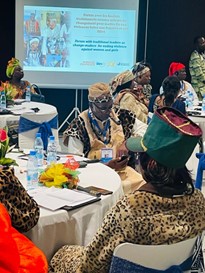
Ending violence against women
In 2022, EVAWG action has been focusing on reinforcing prevention strategies in the region through raising awareness on behavior change for EVAWG, validating a Regional Prevention Strategy, engaging key partners, specially traditional & religious leaders as change-makers, working on Sexual & Reproductive Health and Rights (SRHR) under the French Funds MUSKOKA, reinforcing the regional Women’s Movement, working closely with other UN agencies and providing technical support to regional organizations and governments for VAWG legal developments.
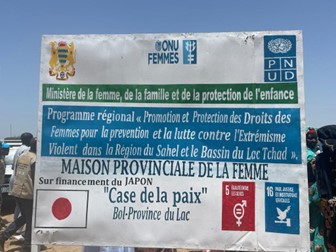
Women, peace, and security
In 2022, the WPSHA program has been focusing on the creation of an enabling environment through the development of the Gender strategy of the G5Sahel and the capacity building of women’s mediators, young women and girls based in the most affected zones of the Sahel. Financial and institutional support was provided to key national and regional women’s organizations. This support will continue thanks to the program financed by the government of Netherlands.
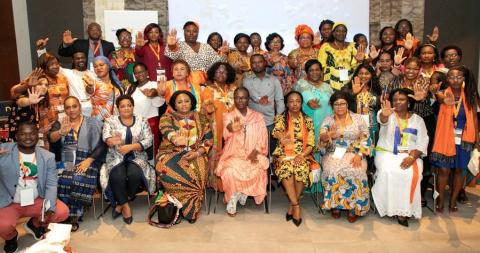
Le Mouvement des Femmes pour Mettre fin à la Violence à l’égard des Femmes et des Filles en Afrique de l’Ouest et Centrale tient ses premières assises régionales à Abidjan lors du Forum de haut niveau d’ONU Femmes qui vise à reconnaitre, célébrer et renforcer la société civile de la région.
Abidjan, Côte d’Ivoire, décembre 2022 - Les 7 et 8 décembre s’est tenu le Forum sur le Renforcement du Mouvement des Femmes pour mettre fin à la Violence à l’égard des Femmes et des Filles en Afrique de l’Ouest et centrale, organisé par l’Organisation des Nations Unies pour l’égalité des sexes et l’autonomisation des femmes (ONU Femmes). Ce Forum se tient dans le cadre des 16 Jours d’Activisme contre la Violence Basée sur le Genre, une campagne historique menée par la société civile qui se déroule du 25 novembre, Journée Internationale pour l’Élimination de la Violence à l’égard des Femmes et des Filles, jusqu’au 10 décembre, Journée Internationale des Droits Humains.
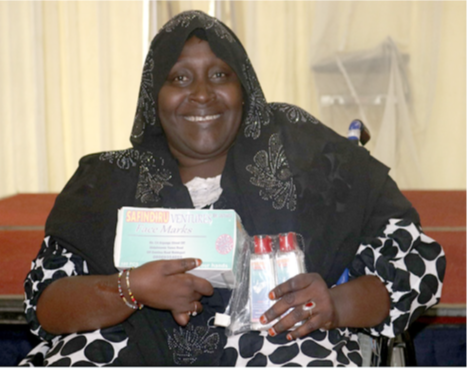
Adama Balla runs her business Safindiru ventures in Maiduguri within Borno state, northeast of Nigeria. Her business has been in existence since 2020, where she deals in the production of personal protective equipment (PPEs) including hand sanitizer and face masks. She came into contact with the project in 2021 and was trained in entrepreneurial skills. According to her, before venturing into the production of PPEs, she was making and selling snacks. However, she decided to produce PPEs during the COVID-19 pandemic. ” As a person with a disability, even though I encountered so many limitations, I was determined to succeed in my business, but I lacked all the management skills. People were not even patronizing as expected. However, through the training the project offered, I was able to register my business and brand products making them more appealing to customers. I have a logo and my packaging has also improved. I have negotiation and networking, and market linkages. I have a business plan and am looking forward to opening a company account.”, Adama said. Although she does not have a shop yet, she is currently working to create a dedicated space in her home and an online platform to display and market her products to clients with easy access and patronage.
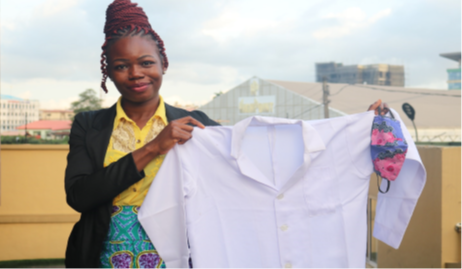
Faith Onyinye from Enugu State owns Creative Hands Masterpiece, producers of PPEs including medica, face masks, and lab coats. Her business has been in operation since 2016 with a staff strength of five where they sow PPEs for sale. As a beneficiary of the project, Faith received capacity on business management skills to facilitate qualifying for government intervention plans and other opportunities. She recollected how she struggled with negotiation and pricing, which led her to lose customers most of the time until the training equipped her with how to run her enterprise effectively. “The series of training equipped me on how to deliver excellent customer care services. improve on my negotiation skills as I was struggling with pricing points.” As part of her vision for her business, Faith looks into a future where she can build a team of young entrepreneurs and empower school dropouts to start up their businesses through partnerships. She has been able to expand her business by sourcing upholstery for interior décor, and beading works, and plans to venture into the textiles industry as well.
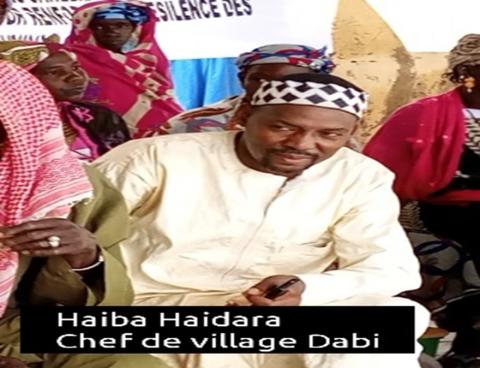
Haiba Haidara village Chief of Dabi: “I can attest to all the production inputs we received from the NGO RED and its partner UN Women. These inputs range from materials and infrastructure (wheelbarrows, machetes, watering cans, rakes, watering points, seedlings for reforestation, etc.) to seeds (rice, sorghum, okra). All RED's activities contribute to the prosperity of our rural activities and consequently to our development. The fixing of the dunes has given us great satisfaction. I'd like to take this opportunity to thank RED and UN Women very much for the activities that contribute to our self-development. We have a good working relationship with the field team and the activities are proceeding smoothly”.
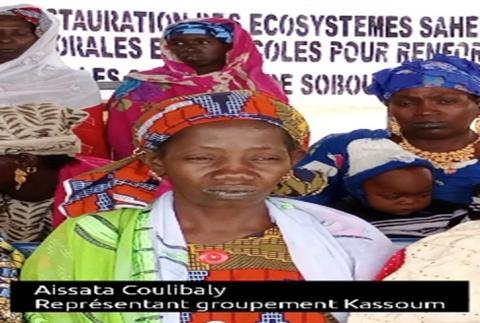
Aissata Coulibaly representative of Kassoum village women’s group: “My name is Aissata Coulibaly. I've come to the official reception of materials and seeds donated by the NGO RED and its partner UN Women at the Soboundou town hall. The materials we received are many and varied: seeds, fences, wheelbarrows, rakes, cutters, and watering cans. This support strengthens us in our work. We are very happy with the support and are looking for more. We would like to thank RED and UN Women ».
Key achievements
In 2022, UN Women achieved the following results across West and Central Africa:
supported to access improved climate-smart agriculture inputs, improved post-harvest processing technology, financial services, and markets (including through digital means (BuyFromWomen)
supported to register as voters across the 6 geo-political zones of Nigeria
in Nigeria were saved from child marriage through collaboration with traditional leaders
adopted practices and technologies thanks to the training they received, including the development and marketing of climate-adapted rice seeds
passed in Liberia and party leadership in the 'New Elections Law' by the Senate and the House of Representatives through capacity building and advocacy on temporary special measures for the Women's Legislative Caucus of Liberia (WLCL), lawmakers on relevant legislative committees, the Ministry of Gender, Children and Social Protection (MGCSP), and civil society
adopted in Liberia on FGM by the Government and traditional leaders of all 11 FGM-practicing counties in a “six-count policy statement” which suspended the practice for three years effective 21 February 2022
(1,554 women, 1,183 men, 399 boys and 426 girls from 50 communities in Montserrado, Nimba, Lofa, Grand Cape Mount and Grand Gedeh counties who earlier benefited from a training on the Comprehensive Prevention Strategy Document (CPS) and the development of community action plans were reached with awareness disseminated through the roll out of the simplified Comprehensive Prevention Strategy against VAWG
